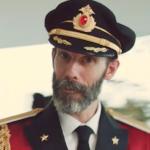I'll sound out of place here, but the world has a lot of educated. Knowledgeable people. I'm glad my heart surgeon was both, because, even with that, he also needed skill. That's one factor that's always amiss in these discussions.
Yes, there are folks as dumb as rocks that hold degrees and their are geniuses out there that can't pass an 8th grade spelling exam.
Maybe it's what you do with that education and knowledge.
Our education system was set up as a one size fits all, but it doesn't.
I'm a high school drop out with a college degree. Quit school at 16 because I was bored. Spent the next decade discovering that there was a lot out there to know, and first chance I got, took my GED test and started college.
I didn't spend weekends getting drunk and partying. I worked a full time job that was beyond my physical limitations. The education I received was enough to open doors, but if was the knowledge I gleaned and how to think that allowed me to move forward once those former closed doors opened.
I discovered I have an ability to think, I have the rabid curiosity to explore, and a boredom that comes too easy. Fortunately, I habe the tenacity to pursue what I need to know when I need to know it. That was a key from turning education to knowledge. I haven't a clue about, say, the Battle of Hastings, but if I need information on it, I know where to look. Today I have a general outline on the history of chopsticks based on an article I read decades ago. Trick memory. I couldn't tell you, for example, when chopsticks originated, but I knew why. Why would I retsin that information? I saw it in use when I was associated with Habitat for Humanity. Common theme; use the local materials available to you. Concrete blocks make better homes in jungles because they won't rot in the damp. Chop sticks were made from animal bones because wood was too expensive to spare for that.
Knowledge and education are not just you have one or the other, but how you use the in tandem with your skill sets.
One thing I found in my studies, though, is that people often confuse opinions with facts. Also, knowledge in one field does not necessarily cross over into others. The dumb as rocks educated people may very well be good at what they do and are trained to do, but worthless outside that niche. Or they can be like the biochemist, Isaac Asimov, whose specialized in cancer research. But wrote on a number of subjects, from the Bible (he was an atheist) to physic


 Caption this Meme
Caption this Meme